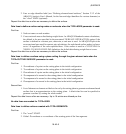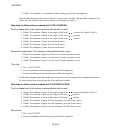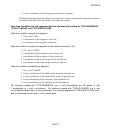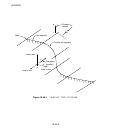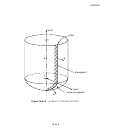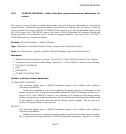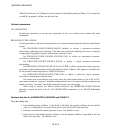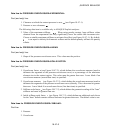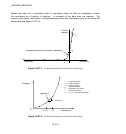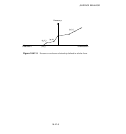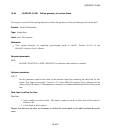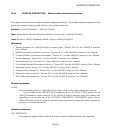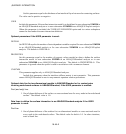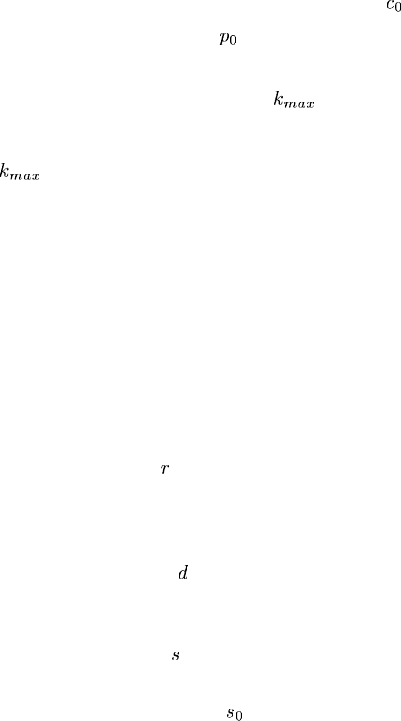
*
SURFACE BEHAVIOR
Data line for PRESSURE-OVERCLOSURE=EXPONENTIAL:
First (and only) line:
1. Clearance at which the contact pressure is zero, (see Figure 18.47–1).
2. Pressure at zero clearance,
.
The following data item is available only in A BAQU S/Explicit analyses:
3. Value of the maximum stiffness,
. When using penalty contact, large stiffness values
obtained from the exponential law may significantly lower the stable time increment size.
Choose a suitable maximum s tiffness to mitigate this effect (see Figure 18.47–1). By default,
is set equal to infinity for kinematic contact and the default penalty stiffness for penalty
contact.
Data line for PRESSURE-OVERCLOSURE=LINEAR:
First (and only) line:
1. Slope of the pressure-overclosure curve. This value must be positive.
Data line for PRESSURE-OVERCLOSURE=SCALE FACTOR:
First (and only) line:
1. Overclosure factor, (see Figure 18.47–2), which defines the overclosure measure (used to
delineate the segments of the pressure-overclosure curve) as a percentage of the minimum
element size in the contact region. This value must be greater than zero. Leave blank if an
overclosure measure (second data item) is specified.
2. Overclosure measure,
(see Figure 18.47–2), which defines the overclosure measure (used to
delineate the segm ents of the pressure-overclosure curve) directly. This value must be greater
than zero. Leave blank if an overclosure factor (first data item) is specified.
3. Stiffness scale factor,
(see Figure 18.47–2), which defines the geometric scaling of the “base”
stiffness and must be greater than one.
4. Initial stiffness scale factor,
(see Figure 18.47–2), which defines an additional scale factor
for the “base” default contact stiffness and m ust be greater than zero. The default value is one.
Data lines for PRESSURE-OVERCLOSURE=TABULAR:
First line:
1. Pressure.
2. Overclosure.
18.47–3
ABAQUS Version 6.1 Module:
ID:
Printed on:



